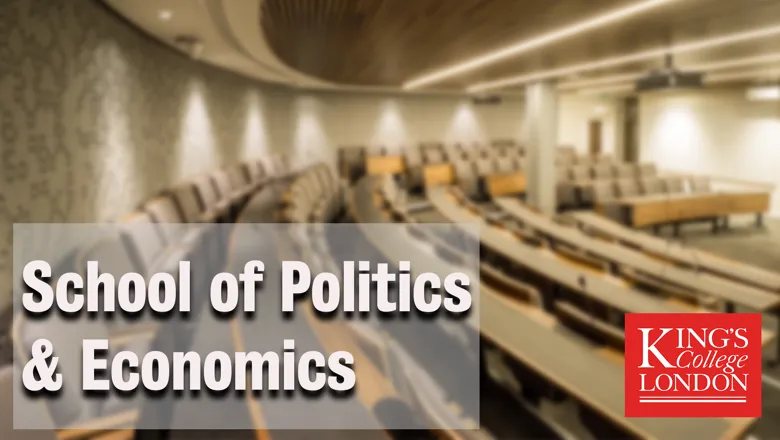17 August 2023
Praise for teaching and support in NSS survey
The National Student Survey (NSS) results for 2023 have been published and the School of Politics and Economics scored strongly for the quality of teaching and academic support.

Graduating students in the Department of European and International Studies gave ‘academic support’ a positivity score of 92 per cent, with a 93 per cent score for ‘teaching’ and a 91 per cent positivity score for ‘organisation and management’.
In the Department of Political Economy, graduates gave positivity scores of 88 per cent, 86 per cent, and 75 per cent across the same categories respectively.
On all three measures, the School of Politics and Economics scores were ahead of, or equal to, the average score for the Faculty of Social Science and Public Policy.
The NSS captures the views of graduating students across a wide range of categories, from teaching and wellbeing to assessment and freedom of expression, and use ‘positivity measures’ which are the proportion of respondents who chose a positive option (e.g. ‘very well’ or ’well’) in response to each of the questions asked.
Also notable in 2023 was the introduction of a new category, freedom of expression, which offered respondents the opportunity to reflect on their ability or offer their opinions and views freely in the classroom.
The Department of European and International Studies recorded a positivity score of 100 per cent on this measure, with an 87 per cent score for the Department of Political Economy.
At a university level, the BA European Politics programme recorded one of the highest average positivity levels at King’s.
The survey results also highlighted areas where further progress can be made, including in the communication and promotion of wellbeing services and the strengthening of feedback and assessment for students.
Professor Peter John, head of the School of Politics and Economics, said: “These are an encouraging set of results for the school and I was particularly pleased to see the positive feedback we received around teaching and academic support, as well as freedom of expression.
“I want to thank everyone in the school for their contributions and acknowledge all the hard work that has gone into the positive experience for our students we see reflected in these results.
“We will take time now to reflect on all the survey responses and work towards improved outcomes in those areas in which we can do better. As a school, that means acting on feedback received about access to wellbeing support for our students, as well as course assessment and feedback.”

